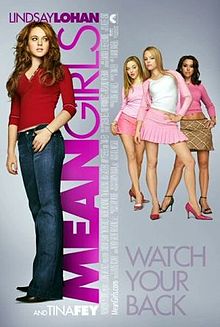A feud is brewing between George Takei (of Star Trek, and more recently Facebook, fame) and tech guru Robert Scoble. At the heart of the disagreement is an issue that could become the free speech issue of our day: control over one’s social networking feed.
Some background
Takei has developed a large following on his Facebook page. Recently, Facebook has instituted changes whereby page owners must pay a fee to ensure that more of their followers see posts. Takei’s forthcoming book devotes an entire chapter to criticizing the system. He wonders, “I am curious as to why interactivity rates on my page appear to fluctuate so much when I have done nothing different.” I agree with Takei that it seems disingenuous for Facebook to start filtering posts (much less charge for higher exposure), after one develops a following on their network.
Scoble is working on a book on “contextual computing,” which is a topic I’ll confess to being excited about. Context awareness allows computers respond to their surroundings. For example, I’ve configured my smartphone to turn up the volume when I get home but down at night. I’ve configured my computer to change the default printer based on whether I’m at work or at home. It won’t be long before our computers recognize where we are, and what we are doing, and organize our content automatically (good bye folders and tagging!).
The disagreement
Scoble’s response to Takei’s criticism of Facebook was to call for a “war on noise,” and to ask George Takei to “sit down and shut up” (woah!).
With constant feeds of content from Twitter, Instagram, Facebook, etc., we are in a deluge of information (“noise”) that we can’t keep up with. He finds the answer to the problem to be algorhythms like Facebook’s EdgeRank system, which makes statistically-based guesses on what individual users will be interested in. Just when we have gotten used to personal mass communication, this type of “contextual computing” is making editorial decisions about how to disseminate our speech.
The “daily me”
Some years ago, Prof. Cass Sunstein wrote of the “daily me” (first coined by Nicholas Negroponte) in his book Republic.com. It’s described as “a communications package that is personally designed, with each component fully chosen in advance.” The entirety of the book is dedicated to predicting the social ills that might arise from the “daily me,” such as siloing ourselves into separate interest groups that don’t know how to talk to each other. Sunstein finds that the random surprises in uncurated media offer opportunities to connect with ideas that one might otherwise miss.
The rub
I think Scoble is off the mark calling prolific communicators “noise,” and even farther off by calling systems like EdgeRank “context.” To me, “context” is a mechanical response to the moment. It allows machines to take into account what’s going on in the world around us. The “daily me” is curation, not context. Mechanically editing a content stream is not a response to the world around the individual — at best, it’s a misguided attempt to statistically guess interest, and at worst it is blatant censorship.
I have spoken with small business owners and educators who share Takei’s frustration. Most of the people I know find EdgeRank’s choices to be off the mark, and are wondering what has happened to all of their friends that Facebook is hiding. As individual mass communicators we have rightfully developed an expectation to have our voice heard.
We want our contextual computing to help organize and suggest content — to make life more convenient. We don’t need algorhythms to censor what we have to say. The market, and the marketplace of ideas, already does a fine job of it.


